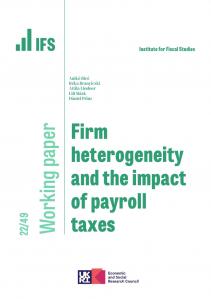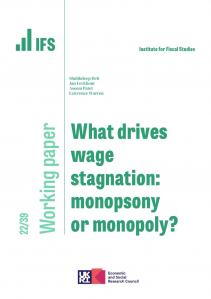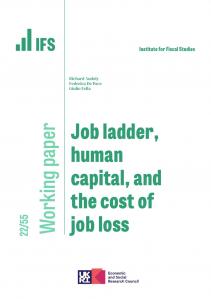In a new paper published today, IFS researchers address Productivity Puzzles. There are many factors affecting productivity. We find little evidence that the overall fall has been caused by labour hoarding, the demise of financial services or changes in workforce composition. Instead, we conclude that the key contributing factors are likely to be low real wages, low business investment and a misallocation of capital.
This paper is a pre-released chapter from the February 2013 IFS Green Budget, funded by the Nuffield Foundation and to be launched on Wednesday 6th February.
Authors

Research Associate University of Sussex
Richard is an IFS Research Associate, a Part-time Professor of Economics at the University of Sussex and a Visiting Professor of Economics at UCL.


Research Associate
Wenchao is an Assistant Professor at the University of Sussex and an IFS Research Associate.
Press Release details
- Publisher
- IFS
More from IFS
Understand this issue

Kwasi Kwarteng homes in on the right problems, but solutions don’t add up
26 September 2022

How do firms impact inequality?
16 June 2022

The NHS waiting list: when will it come down?
29 February 2024
Policy analysis

The IFS Scottish Budget Report – 2024–25
22 February 2024

Scottish NHS is treating fewer patients than pre-pandemic, despite big increases in staffing
9 February 2024

Is there really an NHS productivity crisis?
17 November 2023
Academic research

Firm heterogeneity and the impact of payroll taxes
24 November 2022

What drives wage stagnation: monopsony or monopoly?
26 September 2022

Job ladder, human capital, and the cost of job loss
13 December 2022